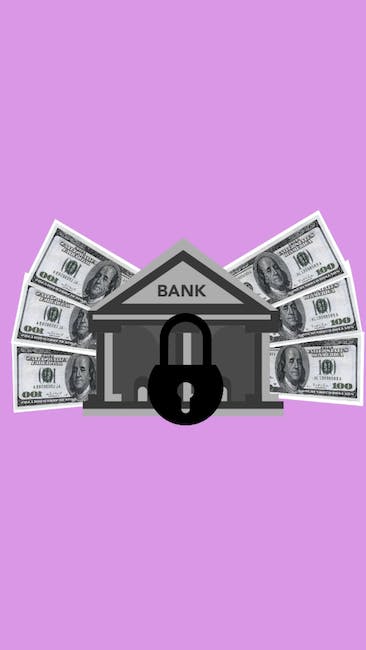Are you considering taking out a personal loan, but don’t know where to start? Look no further than this comprehensive guide. From understanding personal loans to building good credit, this guide covers everything you need to know about dealing with personal loans.
Understanding Personal Loans

Personal loans are a type of unsecured loan that can be used for any purpose. They are typically used for large expenses like home improvements, medical bills, or debt consolidation. Personal loans come with fixed or variable interest rates and borrowing limits. When taking out a personal loan, it is important to understand the terms and conditions. Take the time to read through the contract carefully and ask questions if something isn’t clear.
Determining your Eligibility

Before you apply for a personal loan, it is important to determine your eligibility. Lenders typically consider your credit score, income, and debt-to-income ratio when deciding whether to approve your application. You can usually check your credit score for free online. If your credit score is low, take the time to improve it before applying for a loan. This can include paying off debts, paying bills on time, and disputing any inaccuracies on your credit report.
Choosing the Right Lender

There are many lenders that offer personal loans, including banks, credit unions, and online lenders. It is important to research the different options and choose a reputable lender that offers competitive rates and terms. Compare interest rates, fees, and repayment terms before making a decision. Some lenders may offer incentives like rate discounts for auto-payments or other services, so make sure to ask about these when doing research.
Borrowing Responsibly

When taking out a personal loan, it is important to borrow responsibly. After calculating your budget and determining your maximum loan amount, only borrow what you need. It can be tempting to use the loan money on unnecessary expenses, but this can lead to financial trouble later on. Personal loans often come with high interest rates, so it’s important to only borrow what you can afford to pay back.
Carefully Reading the Loan Terms

One of the most important steps when applying for a personal loan is reading the terms and conditions carefully. Make sure you understand the interest rate, repayment terms, and any fees associated with the loan. If there are any unclear terms or confusing language in the agreement, ask the lender for clarification. This can prevent misunderstandings and surprises down the road.
Repaying the Loan on Schedule

Personal loans come with fixed repayment schedules. It is important to make payments on time to avoid defaulting on the loan. Set up automatic payments or reminders to ensure timely payments. If you are struggling to make payments, contact your lender to discuss options like deferment or a payment plan. It’s better to be proactive and transparent than to avoid contact with the lender.
Avoiding Default

Defaulting on a loan can have serious consequences, including damage to your credit score and potential legal action. If you are unable to make payments, contact your lender as soon as possible to discuss options. Lenders may be willing to work with you if you are upfront and honest about your situation. Ignoring the situation can only make it worse.
Paying off the Loan Early
Some lenders allow early repayment without penalty. If you are able to pay off your loan early, it can save you money on interest and help improve your credit score. Before making an early payment, check with your lender to ensure there are no fees associated with early repayment. Just make sure it won’t negatively affect your budget for other important expenses.
Considering Alternatives to Personal Loans
Personal loans may not be the best option for everyone. If you have a low credit score or cannot afford the interest rates, consider alternatives like credit counseling, debt consolidation, or a secured loan. Secured loans may require collateral like a car or house, but they typically offer lower interest rates. Even if a personal loan was right for you in the past, always keep your options open and consider new options for the future.
Continuing to Build Good Credit
Building good credit is important for many reasons, including taking out loans in the future. Paying off a personal loan can help improve your credit score, but it is important to continue building good credit in the future. This includes making timely payments on all bills and credit accounts, keeping credit card balances low, and monitoring your credit report for errors or fraud.
With this guide on dealing with personal loans, you’re now equipped with the knowledge to make a responsible and informed decision. Remember to borrow responsibly, read the terms and conditions, and communicate with your lender throughout the process. Happy borrowing!







